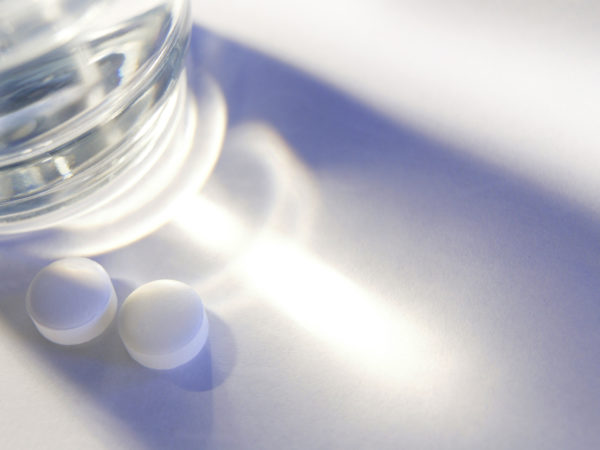Can Aspirin Prevent Breast Cancer Recurrence?
I’ve been told that taking aspirin daily can prevent breast cancer from returning. Can you tell me anything about this? Does aspirin have any effect on any other type of cancer recurrence?
Andrew Weil, M.D. | February 11, 2016

The short answer to your question is we don’t know yet. It is true that some observational studies suggest that taking aspirin daily can reduce the breast cancer recurrence rate by 50 percent. A study in Scotland that included 4,627 women who took daily aspirin after breast cancer surgery found a lower risk of death from breast cancer and all other causes. And an observational study of women treated for breast cancer in the U.S. found that those who took a daily aspirin for three to five years following treatment for breast cancer were 60 percent less likely to experience a recurrence, and 71 percent less likely to die from the disease.
You might think those results make a strong case for aspirin’s ability to prevent breast cancer recurrence, but, in fact, they show only a correlation, not a cause-and-effect relationship. They don’t prove that aspirin was responsible for the differences.
The question of whether taking daily aspirin actually does help prevent breast cancer recurrence may be answered in the next decade by two newly launched studies. Researchers from Brigham and Women’s Hospital and the Dana Farber Cancer Institute, both in Boston, have announced a five-year randomized trial to test that possibility. The investigators plan to recruit 3,000 women with Stage 2 and 3 breast cancer. Half the women will be randomly assigned to take aspirin and half will get a placebo. Women with Stage I breast cancer aren’t being included because their risks of recurrence and death from breast cancer are already low. Women with Stage IV (advanced) breast cancer have also been excluded, because there’s not enough evidence to suggest that aspirin can help in those cases.
If the results of the trial are positive, the researchers estimate that taking aspirin daily may save 10,000 lives a year in the U.S. and 75,000 lives in low-income countries around the world. They were awarded a $10 million grant from the U.S. Defense Department to fund the study.
Another randomized clinical trial to test aspirin against a placebo was launched in the UK and India in October 2015. It is looking at the effect of daily aspirin on recurrence rates of four types of cancer – breast, colon/rectum, stomach/esophagus and prostate. This 10-year study will enroll 11,000 participants, including 3,100 women who have had surgery for early stage breast cancer.
Although taking aspirin daily can cause gastrointestinal bleeding, the American research team maintains that it has been safely used in many trials and is widely used to lower the risks of heart disease and colon cancer.
If the new studies show that aspirin can help prevent breast cancer recurrence, it will likely be added to chemotherapy and hormonal drugs such as Tamoxifen already in use. Because aspirin is inexpensive, if it does prevent recurrences, it might be the only treatment readily available to breast cancer patients in poor countries.
Andrew Weil, M.D.
Source:
Michelle Holmes and Wendy Chen et al, “Aspirin intake and survival after breast cancer.” Journal of Clinical Oncology, March 20, 2010, doi: 10.1200/JCO.2009.22.7918










